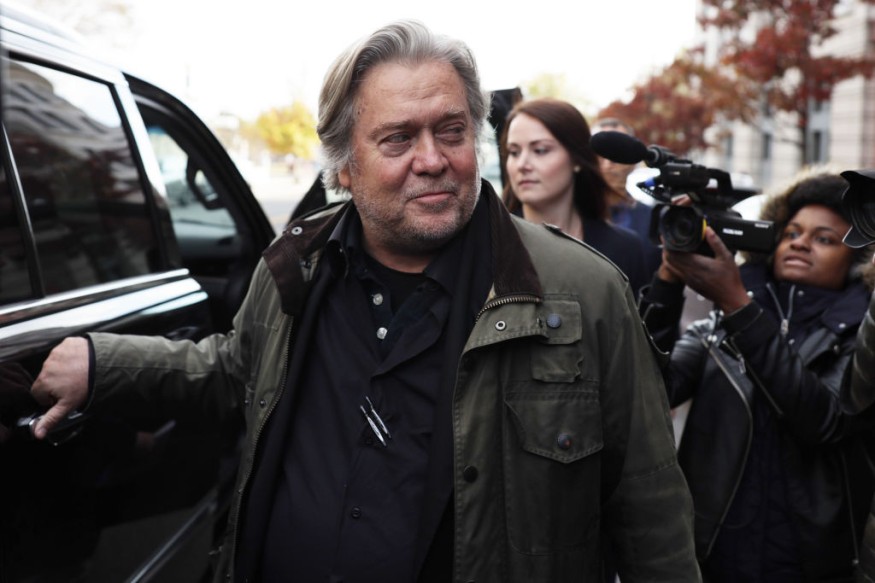Steve Bannon Openly Defied U.S. Government and Acted Above the Law Says Prosecutor

The contempt trial for former Donald Trump chief strategist Steve Bannon has begun, revealing details that Bannon willfully ignored the law. Assistant U.S. Attorney Amanda Rose Vaughn told jurors in her opening statement that Bannon "decided he was above the law."
The Washington Post reported that Vaughn also argued that Bannon chose to show his contempt for Congress by willfully refusing to comply with his subpoena. In her opening statement, the Assistant U.S. Attorney said that the subpoena was not optional, nor was it a request, nor was it an invitation. It was mandatory. This meant that by law, Bannon must comply with it, but he did not.
Defense Says Bannon Did Not Ignore Subpoenas
On the other hand, Bannon's lawyer, Evan Corcoran, told jurors that they should question whether the trial was affected by politics. He also declared that his client was innocent and that the two subpoenas delivered to Bannon were still subject to negotiation.
Corcoran argued that the dates on the subpoenas were not fixed and were flexible. The Associated Press reported that one of Bannon's previous attorneys, Robert Costello, contacted an attorney for the January 6 House Committee. Costello expressed his concerns about Bannon testifying, and he negotiated because "that is what lawyers do."
Because of this, the Bannon defense team argues that their client did not ignore any subpoena and that they were still negotiating. CNBC noted that the case all boils down to whether Bannon purposely ignored the subpoenas or was just negotiating.
Once outside the courthouse, Bannon went on an extended tirade against January 6 Committee chairman Rep. Bennie Thompson (D-Mississippi). He called the hearings a "Show Trial" and repeated discredited claims that Trump won the election.
January 6 Committee Chief Counsel Explains Why Steve Bannon's Testimony Was Important
During the first hearing last Tuesday, the prosecution called in their first witness, Kristin Amerling, the chief counsel for the January 6 Committee. There, she gave a detailed explanation about the House Committee and its role in determining the role of Donald Trump in the January 6 Capitol Insurrection.
She also stated how vital Steve Bannon's testimony was to the investigation. She said that the former White House chief strategist made public statements that suggested he may have had some advanced knowledge in the lead-up to the events of January 6. She also said that there were several indications that Bannon might have discussed and planned the events of January 5 with several individuals within the White House. This included then-President Donald Trump himself.
Bannon, together with Trump, argued that he cannot be subpoenaed because of "executive privilege." However, a judge struck that argument down.
Before Tuesday's proceedings, Trump-appointed U.S. District Judge Carl Nichols ruled that several major elements of Bannon's defense were irrelevant and could not be used in court. He said that Bannon could not be covered by Trump's executive privilege at that time because he was not an official adviser anymore. He also could not claim to be covered by that privilege, nor can he say that he was acting on the advice of his attorneys.
The trial is scheduled to resume on Wednesday morning.
This article is owned by Latin Post.
Written by: Rick Martin
WATCH: Judge Denies Request To Delay Steve Bannon's Trial Over Admissible Evidence Arguments - MSNBC
Subscribe to Latin Post!
Sign up for our free newsletter for the Latest coverage!

















